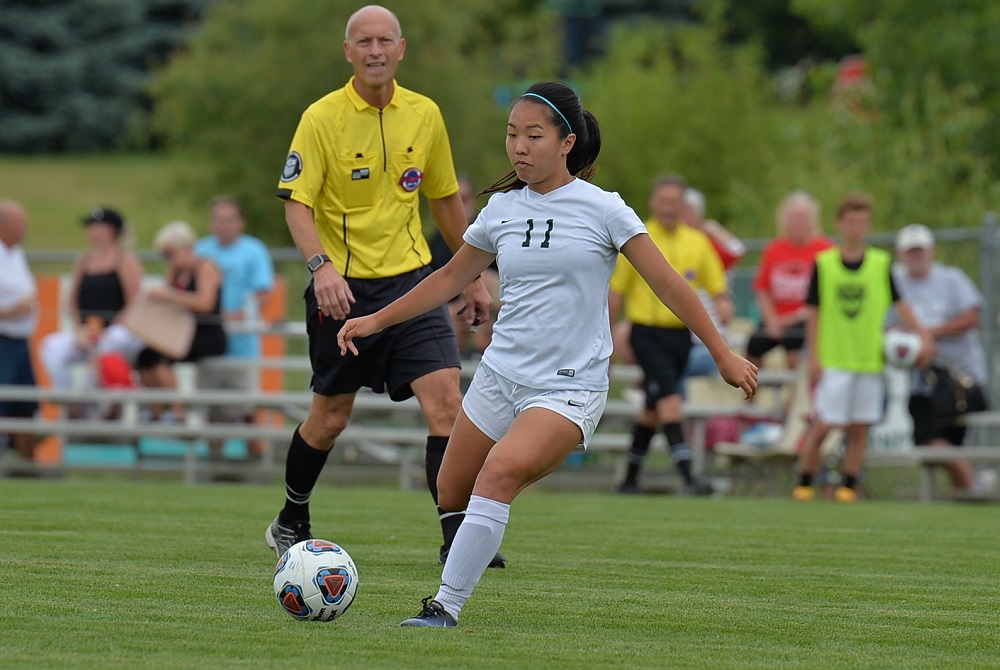
Be the Referee: Kickoff Goal
By
Brent Rice
MHSAA Assistant Director
September 27, 2022
Be The Referee is a series of short messages designed to help educate people on the rules of different sports, to help them better understand the art of officiating, and to recruit officials.
Below is this week's segment – Kickoff Goal - Listen
We’ve got a 2-1 soccer game at halftime, and the trailing team is set to kick off to start the second half. The teams get lined up and number 11 from the trailing team gives it a healthy boot. It flies, untouched by any other player, and gets past the goalkeeper into the back of the net. They start celebrating, thinking they’ve tied the game at 2. But should they be?
Can a team score directly from kickoff? They can. There are a number of ways soccer teams can score. A goal can be scored directly from a kickoff, a corner kick, and a direct free kick.
Goals cannot be scored from an in-direct free kick or a throw-in. But from a kickoff? Count it!
Previous Editions:
Sept. 20: Soccer Timing - Listen
Sept. 13: Volleyball Replays - Listen
Sept. 6: Switching Sides - Listen
Aug. 30: Play Clock - Listen
Aug. 23: Intentional Grounding Change - Listen

Be the Referee: 40-Second Play Clock
August 29, 2019
This week, MHSAA Assistant Director Brent Rice explains the change in football to a 40-second play clock.
Be The Referee is a series of short messages designed to help educate people on the rules of different sports, to help them better understand the art of officiating, and to recruit officials.
Below is this week's segment - 40-Second Play Clock - Listen
One of the rules changes in high school football this year involves timing between downs.
All varsity games will be played with a 40-second play clock that begins after the conclusion of the previous play, with exceptions for things like timeouts, penalties, measurements and at the start of a period – when a 25-second count will be used.
In experiments in Michigan over the past few seasons, the 40-second play clock proved to improve the pace of play and consistency between plays because it is not dependent on the referee’s subjective signal. And while some schools may choose to purchase visible play clocks for their fields, it is not required. The Back Judge, who has the primary responsibility for the play clock, will signal at 10 seconds and count the last five seconds.

